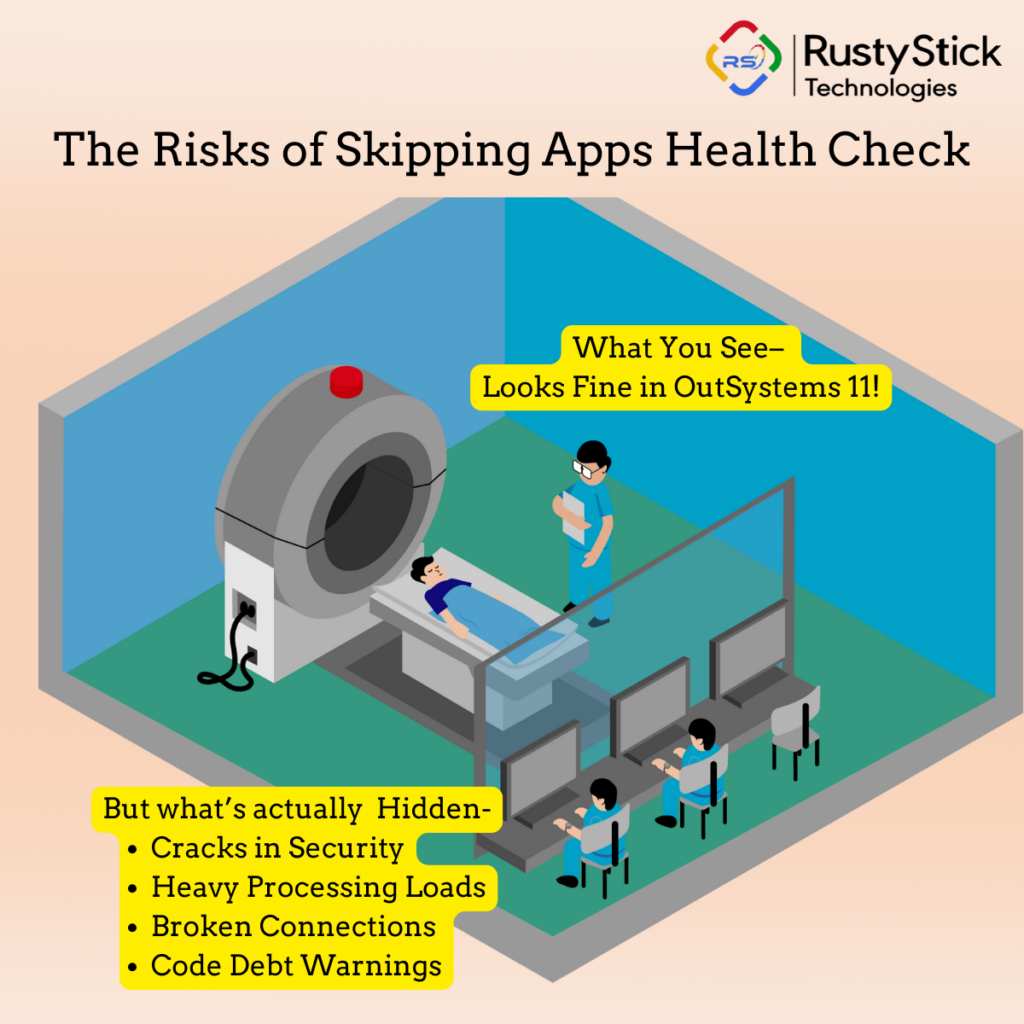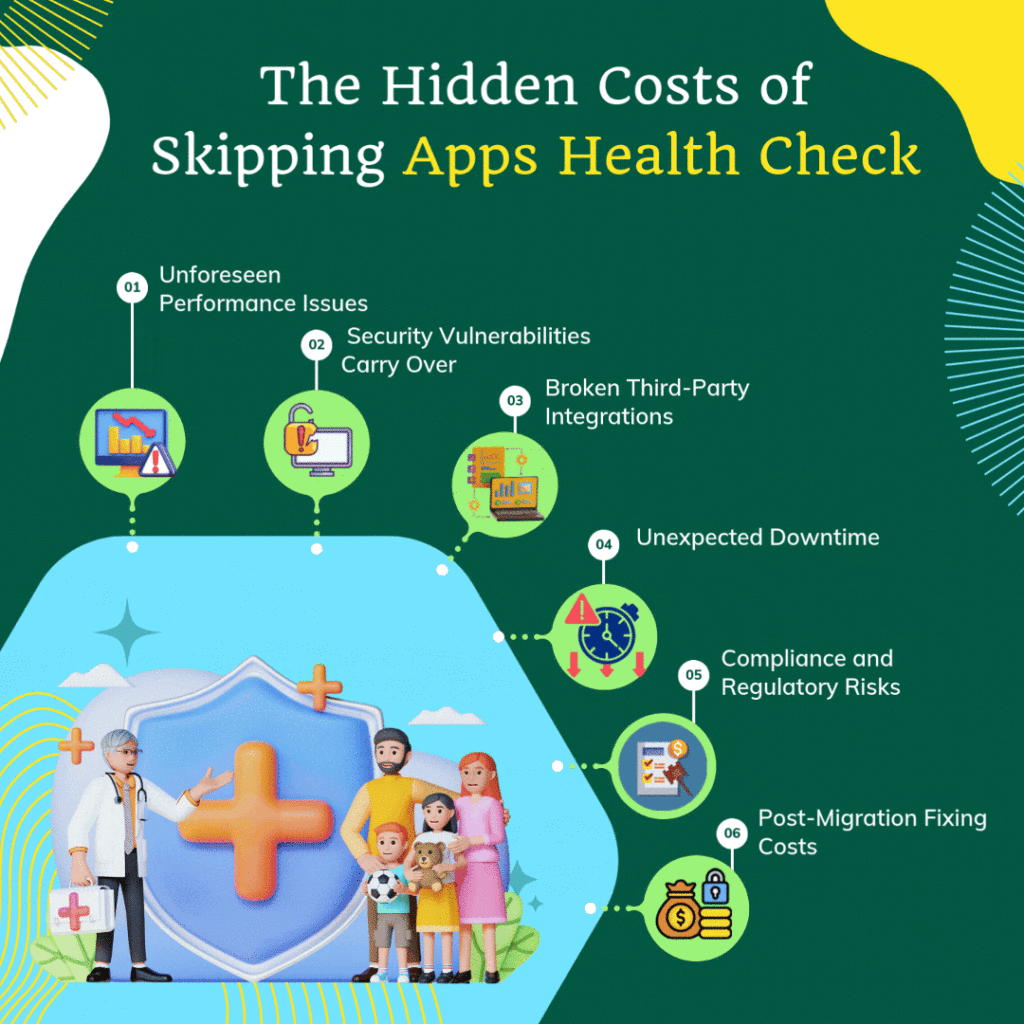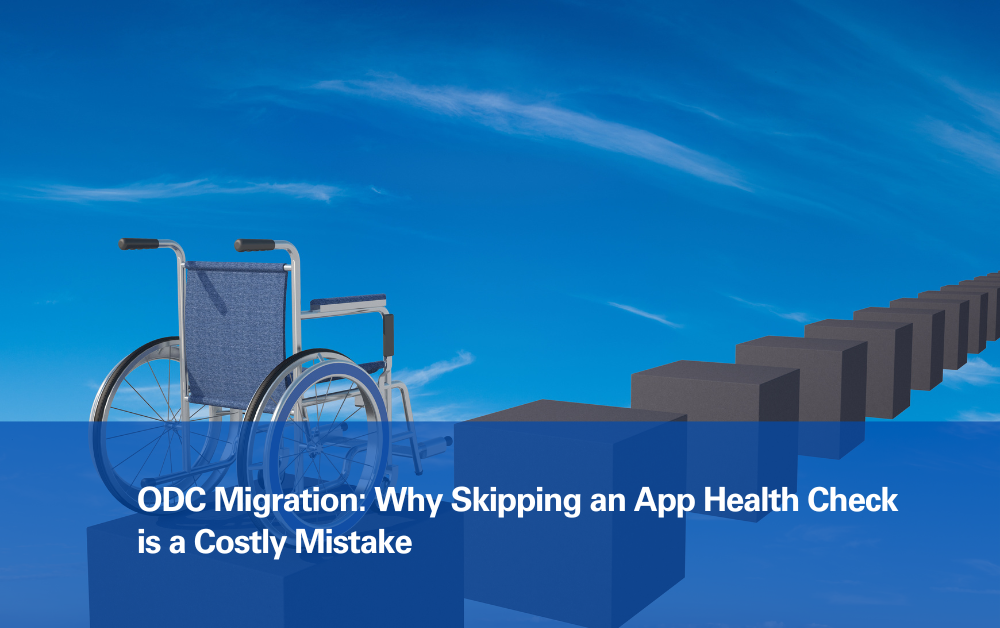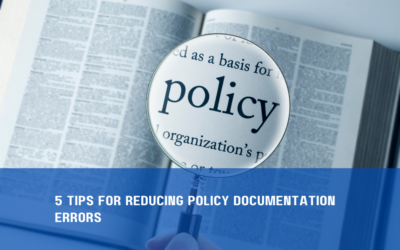Why Rushing Migration Without a Health Check Can Backfire
Moving your application from ODC isn’t just about transferring it from one place to another. Unlike a simple migration, ODC requires rebuilding your app from the ground up to fit its new environment.
Now, imagine shifting to a new house without checking its plumbing, wiring, or foundation. Everything might seem fine initially, but hidden issues can cause serious problems later. The same applies to ODC migration—skipping a pre-migration health check can lead to unexpected failures, high costs, and security risks.
In this blog, we’ll break down the risks of skipping a health check and how it can impact your migration journey.

1. Performance Issues After Migration
Many assume that if their app works well in OutSystems 11, it will run even better in ODC. But that’s not always true. ODC has a different architecture, and without a proper health check, performance issues can surface only after migration.
What Can Go Wrong?
- Slow response times – Unoptimized queries and old workflows can slow down operations.
- Higher cloud costs – Legacy processes might not efficiently use ODC’s cloud setup.
- Latency issues – Microservices in ODC communicate differently, which can cause delays.
A financial company migrated its customer portal without checking performance issues. Within days, customers started complaining about slow loading times. What used to take one second in OutSystems 11 was now taking ten seconds in ODC. The issue? Unoptimized data fetching in the new architecture.
Impact: Frustrated users, increased complaints, and higher cloud costs to fix the problem.
2. Security Risks Carry Over
Some think that moving to ODC automatically improves security. But if your application already has security flaws, they won’t fix themselves—they’ll move with you.
What Can Go Wrong?
- Weak authentication methods – Outdated security settings may not work in ODC.
- Hardcoded credentials – If passwords are stored in the code, they become a security risk in the cloud.
- Unprotected APIs – APIs without encryption or access control can expose sensitive data.
A retail company migrated its e-commerce platform to ODC without checking security loopholes. A misconfigured API allowed unauthorized users to access customer data, leading to a data breach.
Impact: Legal penalties, reputational damage, and loss of customer trust.
3. Integration Failures
Most apps rely on third-party services like payment gateways, CRM systems, and external APIs. These integrations may not work properly in ODC without testing.
What Can Go Wrong?
- API incompatibility – Older APIs may not support ODC’s architecture.
- Data sync failures – If data isn’t orchestrated properly, it may not update correctly.
- Communication breakdown – APIs built for monolithic systems might struggle in ODC’s microservices setup.
An insurance company migrated its claims processing system but didn’t check API compatibility. After migration, their payment gateway stopped working due to an API mismatch, delaying thousands of insurance payouts.
Impact: Business disruptions, manual work, and frustrated customers.

4. Unexpected Downtime and Disruptions
Without a health check, hidden problems can cause your app to break down after migration. Many businesses face downtime they didn’t anticipate simply because they skipped a health check.
What Can Go Wrong?
- Broken workflows – Some processes that worked before may fail in ODC.
- Data migration errors – Missing or corrupt data can lead to serious business disruptions.
- Incompatible modules – Old dependencies may not function correctly.
A logistics company moved its fleet tracking system to ODC. But after migration, their real-time tracking APIs stopped updating correctly, leading to incorrect location reports. As a result, deliveries were delayed, and operational costs soared.
Impact: Lost revenue, emergency fixes, and business inefficiencies.
5. Compliance and Regulatory Issues
Industries like finance, healthcare, and insurance have strict regulations about data storage, encryption, and audit logging. Skipping a health check can put your company at risk of non-compliance.
What Can Go Wrong?
- Unencrypted data – Sensitive data may not be stored securely.
- Missing audit logs – Many regulations require detailed system logs.
- Data residency violations – Some data must be stored in specific locations.
A healthcare provider migrated its patient records system without checking encryption policies. After migration, they realized patient data was being stored in an unencrypted format, violating HIPAA regulations.
Impact: Heavy fines, legal trouble, and potential business shutdowns.
6. High Post-Migration Fixing Costs
Fixing issues after migration is far more expensive and time-consuming than identifying them beforehand. Instead of focusing on new features, your team will be stuck fixing migration problems.
Why Post-Migration Fixes Are Costly?
- Emergency fixes take priority – Teams must rush to fix critical issues.
- Unplanned downtime – Every minute of downtime leads to lost revenue.
- Higher cloud costs – Poorly optimized apps consume more resources.
A financial company skipped pre-migration performance checks and later had to redesign their database structure. This delayed the project by three months and increased costs by 40%.
Impact: Budget overruns, missed deadlines, and frustrated stakeholders.
Why a Pre-Migration Health Check is a Must
Skipping an app health check doesn’t save time—it creates more problems later. A simple pre-migration check helps you:
✔ Identify hidden performance issues before they cause slowdowns.
✔ Check security vulnerabilities and fix them before migration.
✔ Ensure third-party integrations work smoothly in ODC.
✔ Prevent downtime by catching problems before they disrupt your business.
✔ Avoid compliance risks and costly legal issues.
✔ Save time and money by addressing issues early.
Would you rather fix problems before migration or struggle with them after going live? The choice is yours.







